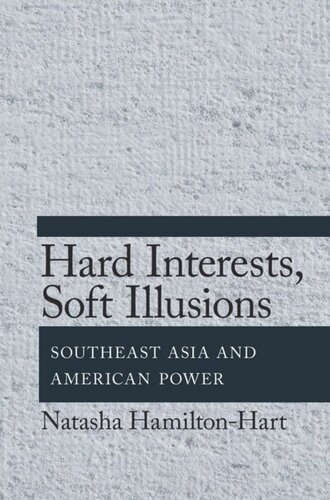

Most ebook files are in PDF format, so you can easily read them using various software such as Foxit Reader or directly on the Google Chrome browser.
Some ebook files are released by publishers in other formats such as .awz, .mobi, .epub, .fb2, etc. You may need to install specific software to read these formats on mobile/PC, such as Calibre.
Please read the tutorial at this link: https://ebookbell.com/faq
We offer FREE conversion to the popular formats you request; however, this may take some time. Therefore, right after payment, please email us, and we will try to provide the service as quickly as possible.
For some exceptional file formats or broken links (if any), please refrain from opening any disputes. Instead, email us first, and we will try to assist within a maximum of 6 hours.
EbookBell Team

4.1
50 reviewsIn Hard Interests, Soft Illusions, Natasha Hamilton-Hart explores the belief held by foreign policy elites in much of Southeast Asia—Indonesia, Malaysia, the Philippines, Thailand, Singapore, and Vietnam—that the United States is a relatively benign power. She argues that this belief is an important factor underpinning U.S. preeminence in the region, because beliefs inform specific foreign policy decisions and form the basis for broad orientations of alignment, opposition, or nonalignment. Such foundational beliefs, however, do not simply reflect objective facts and reasoning processes. Hamilton-Hart argues that they are driven by both interests—in this case the political and economic interests of ruling groups in Southeast Asia—and illusions.
Hamilton-Hart shows how the information landscape and standards of professional expertise within the foreign policy communities of Southeast Asia shape beliefs about the United States. These opinions frequently rest on deeply biased understandings of national history that dominate perceptions of the past and underlie strategic assessments of the present and future. Members of the foreign policy community rarely engage in probabilistic reasoning or effortful knowledge-testing strategies. This does not mean, she emphasizes, that the beliefs are insincere or merely instrumental rationalizations. Rather, cognitive and affective biases in the ways humans access and use information mean that interests influence beliefs; how they do so depends on available information, the social organization and practices of a professional sphere, and prevailing standards for generating knowledge.